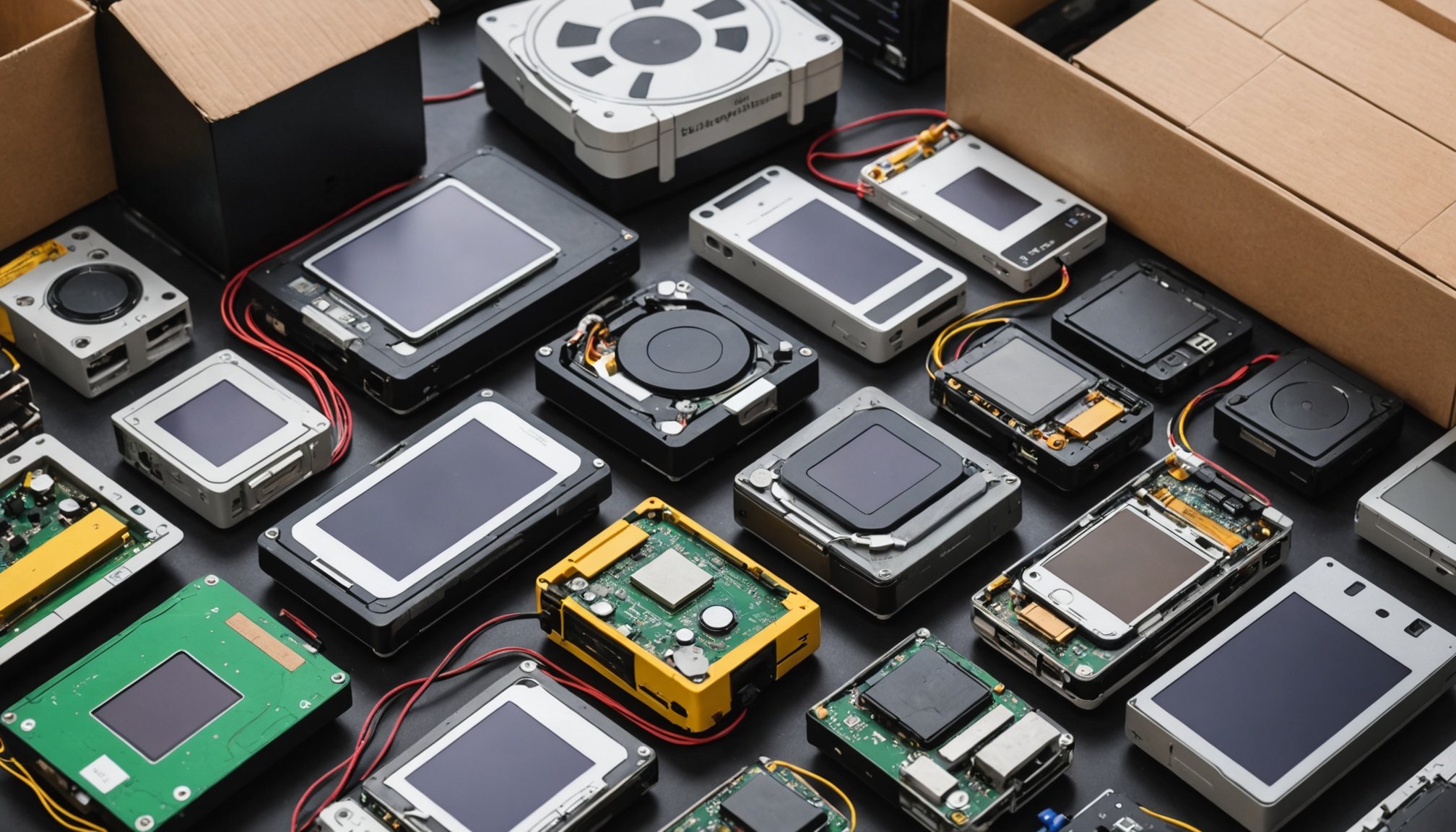Understanding the Importance of Eco-Friendly Electronic Disposal
In the digital age, electronic waste (e-waste) disposal poses significant challenges, especially in regions like the UK. With rampant technological advancements, the volume of discarded electronics escalates, prompting a need for initiative in eco-friendly electronic disposal.
Environmental impact from improper disposal is profound. Devices often contain harmful chemicals such as lead and mercury, which can leach into soil and contaminate water sources, posing risks to both ecosystems and human health. When electronics end up in landfills instead of being recycled, they contribute to environmental degradation, highlighting the urgency for conscientious responsible disposal practices.
Additional reading : Essential Factors to Consider for Choosing Reliable Moving Insurance in the UK
Before moving, individuals should prioritize assessing and managing their electronic disposables. Responsible practices include donating functioning items, engaging with certified recycling programs, or even exploring avenues like trade-in schemes. By adopting these methods, not only do we help reduce the environmental impact, but we also contribute to the circular economy, where resources are reused rather than discarded.
Ultimately, responsible eco-friendly disposal presents both a challenge and an opportunity. Communities must be educated on sustainable practices, ensuring that as technology progresses, its remnants do not become a burden on our planet. Embracing these measures is a powerful step towards preserving our environment for future generations.
Additional reading : Ultimate Guide to Deep Cleaning Your Home Before Moving Out in the UK: Tips and Tricks
Guidelines for Responsible E-Waste Disposal
Proper e-waste recycling is crucial for environmental sustainability and ensuring regulatory compliance. Following specific disposal guidelines helps mitigate the negative impact of electronic waste on our planet.
Know Your Local Regulations
In the UK, laws surrounding e-waste disposal are stringent to prevent environmental harm. Compliance is not just beneficial but mandatory, as improper disposal can result in fines and environmental damage. Important UK regulations include:
- Adherence to the Waste Electrical and Electronic Equipment (WEEE) Directive, which ensures electronics are disposed of or recycled in eco-friendly ways.
- Obligations for producers and distributors to handle e-waste appropriately.
To find specific disposal guidelines relevant to your location, online governmental resources and local council websites are invaluable. These platforms often offer detailed instructions tailored to community regulations, ensuring you stay compliant.
Secure Data Protection
When discarding old electronics, safeguarding your data is paramount. Secure data protection involves several essential steps:
- Data wiping: Perform a complete wipe of your device to remove personal information.
- For effective data wiping, utilise recommended software like DBAN for PCs, or MacClean for Apple devices.
- Consider professional services for complex needs or inadequate technical expertise.
Ensuring data security before e-waste disposal protects against identity theft and maintains your privacy.
Eco-Friendly Options for Disposing of Electronics
Exploring sustainable disposal methods is crucial for reducing e-waste and preserving our environment. Whether through recycling electronics or donating gadgets, each method promotes eco-friendly practices.
Recycling Programs in the UK
Several recognized e-waste recycling electronics programs are available in the UK. These programs provide efficient systems to dispose of old devices responsibly. To locate recycling centres, individuals can use online resources or contact local authorities for guidance. The recycling process typically involves collection, dismantling for parts, and properly managing any hazardous materials. This ensures that the materials do not contribute to landfill waste.
Donating Usable Electronics
Donating gadgets to organizations is another viable solution for sustainable disposal. Many charities and community groups accept old electronics, provided they are in working condition. Preparing devices for donation involves cleaning data, ensuring functionality, and providing any relevant accessories. Donating can be more beneficial than recycling as it extends the life of the product and supports those in need.
Manufacturer Take-Back Programs
Manufacturer sponsored take-back initiatives are a third option. These programs allow consumers to return old electronics to the company. Participating involves checking the manufacturer’s offerings, registering, and shipping the product back. Benefits of take-back programs include safe processing and responsibility managed by the manufacturer, offering a holistic approach to sustainable e-waste disposal.
Costs and Environmental Benefits of Eco-Friendly Disposal
The transition to sustainability involves weighing the initial costs of eco-friendly disposal against their long-term benefits. Cost-effective disposal methods often require upfront investment in specialised recycling processes or biodegradable materials. Nevertheless, these costs are frequently offset by reduced landfill fees and potential rebates or incentives offered by governments to encourage sustainable practices.
When comparing eco-friendly and traditional disposal methods, it’s essential to consider both financial and environmental benefits. Traditional disposal methods typically involve sending waste to landfills, where associated costs include transportation, maintenance, and environmental damage mitigation. In contrast, sustainable practices, while possibly more expensive initially, minimise long-term environmental and health impacts.
Eco-friendly disposal has significant environmental benefits. Sustainable practices prevent harmful emissions from reaching the atmosphere, conserve natural resources through recycling, and reduce the strain on landfills. In addition, they support sustainability by lowering the overall carbon footprint, ultimately leading to a cleaner, healthier environment.
Moreover, the shift towards cost-effective disposal can boost innovation, leading to more efficient waste management solutions. By embracing these methods, individuals and businesses contribute to a sustainable future, benefiting both the environment and their financial bottom line in the long run.











